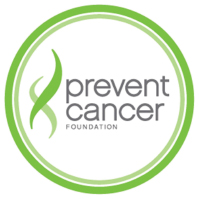Through its community grants program, the Prevent Cancer Foundation is supporting 10 projects that are focused on increasing cancer prevention and early detection in communities across the United States, from Honolulu to Baltimore. The projects were selected through a competitive grants process, and each program will receive a 1-year, $25,000 grant.

The projects focus on a diversity of education and screening goals for breast, liver, colorectal, and cervical cancers, as well as testing for hepatitis B and C, and vaccination for hepatitis B, to help prevent cancers linked to these viruses. These projects will have a direct impact on underserved populations in both urban and rural locations, many of which lack access to cancer prevention and early detection services.
Since 2007, the Foundation has awarded nearly $2 million in community grants in 31 states, as well as in American Samoa and to the Washoe Tribe.
2019 Community Grant Recipients
- African Services Committee, New York: Project DELIVER aims to increase liver cancer prevention awareness through viral hepatitis education, screening, and vaccination within the underserved African-born community in all five boroughs of New York City. In collaboration with community-based organizations and faith-based leaders, the project will organize awareness and screening events, followed by any necessary navigation services.
- Alliance Community Service, Salt Lake City: The Latina Breast Health Navigation Program will provide breast cancer screenings to 300 Hispanic women aged 40 and older, along with patient navigation services and education about the importance of early cancer detection.
- Esperanza Health Centers, Chicago: Serving low-income, uninsured women from primarily Latino neighborhoods on Chicago’s Southwest Side, the Partners of Hope program addresses the urgent need for culturally sensitive and language-appropriate breast health education, accessible mammography screening services, and care coordination. The program aims to provide educational outreach to 500 community residents and screening services to 450 women.
- Friends of Mercy Foundation, Bakersfield, California: This project aims to reach 420 low-income, underserved women with a free breast cancer education and awareness program, led by a bilingual health education coordinator. Education and navigation services will be delivered to young women between the ages of 17 and 25 and to women 40 years and older.
- Health Care for the Homeless, Baltimore: This project will implement strategies to reduce missed appointments and provide support for people experiencing homelessness. As a result, they hope to increase colorectal cancer screening rates to 55% of the more than 4,000 people between the ages of 50 and 74 they serve. The project also aims to increase cervical cancer screening rates to 65% for more than 3,300 women between the ages of 21 and 64.
- Kokua Kalihi Valley Comprehensive Family Services, Honolulu: This hepatitis B care-coordination project is designed to improve the uptake of hepatitis B screening and immunizations during perinatal care in a culturally grounded community health setting, with the potential to help decrease cancer morbidity and mortality. With state and community partners, care coordination will be provided for patients through screening and vaccination or surveillance and support services.
- Nueva Vida, Towson, Maryland: This project will provide education, screening, and navigation to uninsured Latino immigrants in the Baltimore metropolitan area. The project will utilize culturally sensitive and competent educational sessions (charlas) and outreach activities to improve early detection. Cancer screenings for breast, cervical, and colorectal cancers will be provided, with any necessary follow-up care.
- University of New Mexico, Albuquerque: The Comadre a Comadre Program aims to educate, navigate, and conduct follow-up for 300 Latina women aged 40 and older who attend breast health education classes. With community partners, the project seeks to enhance their knowledge of breast cancer and to navigate them to breast cancer screening appointments.
- Vietnamese American Cancer Foundation, Fountain Valley, California: This initiative strives to address the burden of viral hepatitis B and C in the Vietnamese American community through culturally sensitive and language-appropriate media outreach, education, and early detection and treatment services. The project aims to reach 850 people with education and provide 500 screenings, along with individualized patient navigation for vaccination, disease monitoring, and treatment.
- Virginia Harm Reduction Coalition, Roanoke, Virginia: This program aims to prevent hepatocellular carcinoma in populations at high risk of contracting hepatitis C by testing 450 people and making connections with community partners to provide those who need it with antiviral treatment. The Coalition employs a peer-based, mobile outreach model to reach people who are marginalized and stigmatized in the Appalachian region of southwestern Virginia. ■

